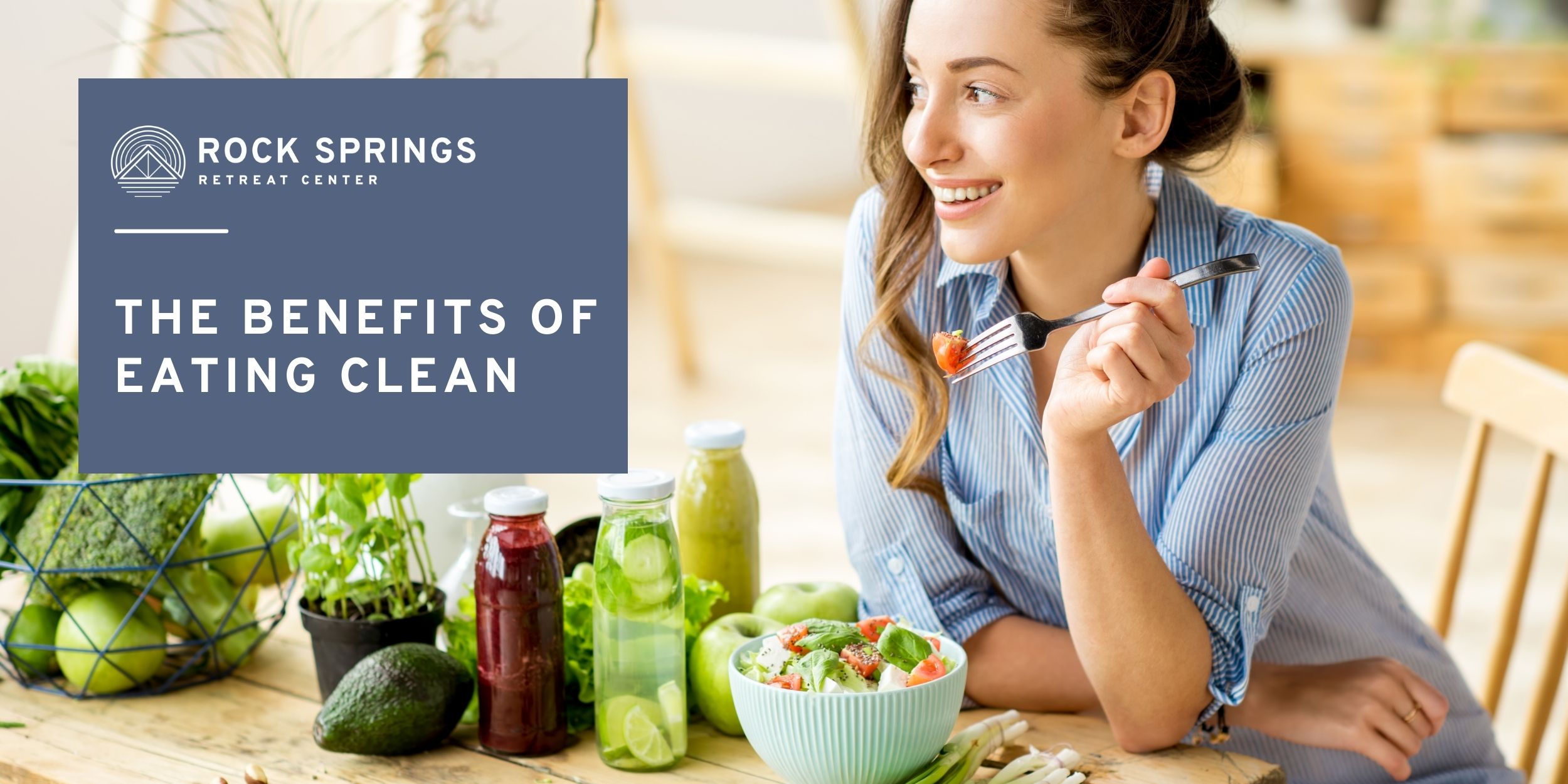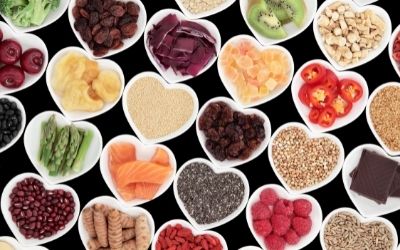
Noise Versus Nutrition: Hanging Up the Hype
In the increasingly fragmented world of nutritional plans and fitness frameworks, it’s fair to say that there’s more than enough confusion out there to make the average person wonder – what’s the best way to structure my eating plan? What works? What’s just hype? The noise in this space is deafening, and sometimes contradictory – fraught with hundreds of alleged experts and practitioners all vying for consumer attention, and (of course) dollars. But whether you’ve just started venturing bravely into this sort of research, or you’re a pro at nutrition, one thing is becoming clear – clean eating is a nutritional framework that has thousands of people extolling its virtues as a way of life.
The truth is that eating clean isn’t just a fad or a marketing scheme, it is a way of living with proven results now beginning to take hold in peoples’ lives. And to break things down to the simplest common fundamentals, we first have to understand the worldview of ‘clean living’.
Clean living is a holistic lifestyle designed to optimize your health and wellness through diet, sleep, optimal exercise patterns, and overall mentality. The concept of clean eating is surprisingly simple: eat as many options that are healthy, whole, and unprocessed, or minimally processed foods. Clean sleeping involves getting full restorative sleep without technology distractions or sleeping aids. Mentally speaking, the precepts of clean-living support finding positive ways to handle stress and reduce negativity. Many people have found clean living to be the most effective for developing and maintaining healthy habits. And if you’re finding it difficult to stick to your healthier habits, perhaps clean living is the lifestyle framework worth exploring.
Finding the Food That Works Best
First, we need to clearly understand what “Clean Eating” represents and what the definition of processed food is. According to an article from Mayo Clinic and defined by the USDA, processed food is defined as any raw agricultural commodity that has been subject to washing, cleaning, milling, cutting, chopping, heating, pasteurizing, blanching, cooking, canning, freezing, drying, dehydrating, mixing, packaging or other procedures that alter the food from its natural state. This may include the addition of other ingredients to the food, such as preservatives, flavors, nutrients, and other food additives or substances approved for use in food products, such as salt, sugars, and fats. So, by definition, most times we engage in food preparation and cooking, we are in fact processing foods. Therefore, we need to see “processed” at levels not as “all or nothing”.
• Level 1: Minimally processed foods — such as bagged spinach, cut vegetables, and roasted nuts — are often simply pre-prepped for convenience.
• Level 2: Foods processed at their peak to lock in nutritional quality and freshness include canned tomatoes, frozen fruit and vegetables, and canned tuna.
• Level 3: Foods with ingredients added for flavor and texture (sweeteners, spices, oils, colors, and preservatives) include jarred pasta sauce, salad dressing, yogurt, and cake mixes.
• Level 4: Ready-to-eat foods — such as crackers, chips, and deli meat — are more heavily processed.
• Level 5: The most heavily processed foods often are frozen or pre-made meals, including frozen pizza and microwaveable dinners.
At Fit Farm we recognize the challenges of the real world. Therefore, we recommend heavily processed foods should be avoided when possible. Minimally processed foods have a place in healthful diets. In the Fit Farm Lab, we prepare food using primarily the first three levels. Level 3 is limited and Level 4 is avoided. We offer “healthy chips” during your stay but they are identified as one of the healthiest choices on the market. Our message remains true, “real food for real life” allow yourself options from all levels but practice moderation as you move down the scale.
In a typical grocery store layout, the healthiest foods are located around the outside of the store, in the refrigerated sections. Processed foods, which inhabit the remaining aisles, are defined as foods that are created in a factory or altered from their natural state. For a quick and easy way to identify how processed a food item is simply look at the label. The more processed the food item is the more unnatural ingredients there will be on the label (many you likely can’t pronounce). Processed foods typically include preservatives to extend their shelf life. They can also have added salt, sugar, flavor compounds, vitamin additives, and food dyes designed to make them taste better or be more visually appealing.
The issue with processed food is that these additives provide little to no nutritional value to our bodies. Processed foods are loaded with refined sugars, carbohydrates, and complex fats that make us feel bad. Even worse, many additives hack our brain’s reward center so that we crave even more unhealthy foods in both the short and long term – depending on how your body’s chemistry reacts to these periodic chemical injections. It’s a dangerous combination that serves to expand our waistlines and fill us with empty calories.
It is important to note that not all food items on the center aisles are bad. Clean foods contain little to no processing. So, many items like organic applesauce, pasta sauce, and canned vegetables are still classified as clean foods. Just be smart about it and read labels carefully. If you can’t pronounce it, you shouldn’t eat it.
Being (And Eating) Clean Has Benefits
Eating clean brings a multitude of benefits. Fruits and vegetables are naturally packed with vitamins and minerals, which are essential for your body during your fitness journey. Not only will they create and process energy, but they’ve also been proven to prevent or alleviate certain health conditions including cardiovascular disease, high blood pressure, and type 2 diabetes. Eating clean can also improve your body’s regulation of insulin, reduce inflammation and oxidative stress in the body, improve gut health and even alleviate some symptoms of mood disorders.
The connection between food and mood had long been ignored by researchers. In recent years, however, research has promoted good gut health is essential to maintaining and improving good health overall. Serotonin, which helps to regulate sleep, appetite, and mood, is primarily produced in your gastrointestinal tract, which is lined which over a hundred million neurons. These neurons operate more efficiently when the intestinal biome is loaded with good bacteria, something which clean foods promote. With a healthy gut, your body can absorb nutrients and uptake serotonin more effectively, giving your energy levels and mood a natural boost (as well as reducing inflammation).
In recent years, even diseases such as diabetes have been referred to as gut diseases with various reputable health organizations and government research programs now citing the link between gut microbiota, energy homeostasis, and low-grade inflammation that contribute to dysregulation of normal glucose tolerance – or, in simpler terms, the diabetic reaction in general. With so much at stake, it’s no wonder that clean eating has begun the foundational aspect of so many nutritional plans in an effort to eliminate (or at least mitigate) many of these conditions that stem from an inflammatory response to overly-processed, overly-chemicalized foods that enter our bodies.
Eating Clean,… In Bite-Sized Chunks
If you’re thinking of going clean(er) you don’t have to do it all at once. It may be helpful for you to ease into the process. Maybe start by eliminating the most processed foods and introducing the clean foods you would enjoy the most into your diet. As you introduce more clean foods into your diet, make note of how you feel. Note which foods seem to give you more energy, improve your mood, or just make you feel better overall. Many people are surprised by the difference whole, healthy foods make in their everyday life.
Feeling skeptical about the benefits? Try eating clean(er) for 2-3 weeks. Then, start to slowly introduce those processed foods you love back into your diet and make note of how different you feel. Listen to your body and go with what makes you feel and perform your very best.
The chefs at Fit Farm cook real, healthy food during your stay at any of our fitness and weight loss retreats. We tailor your meals to your body’s metabolism and ensure that your dietary needs are met. During your stay, you will also learn how to confidently prepare healthy, delicious meals at home! To learn more about the food served at our fitness and weight loss retreats, contact our team at Fit Farm at Rock Springs and start eating cleaner today!




